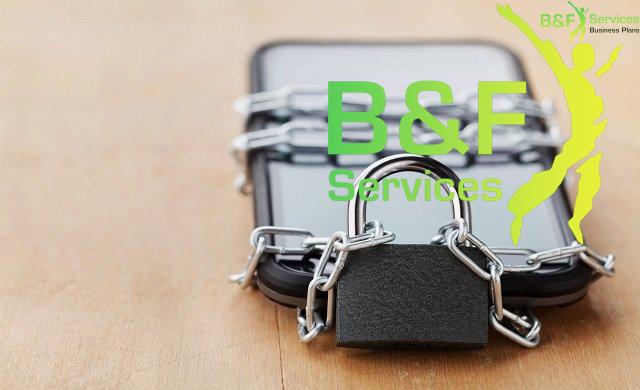

There’s growing awareness of the negative effects of too much screen time. Businesses that help consumers disconnect could reap big rewards in 2019
The on-demand lifestyle created by smartphones has brought unprecedented convenience and connection to consumers. So why are rates of anxiety, depression and social isolation rocketing?
Unfortunately, we have realised too late that an overreliance on our devices might have a negative impact on our wellbeing. And it’s proved much harder to put them down than it was to pick them up.
According to Mintel’s Global Consumer Trends 2019 report, social isolation will be one of the six big trends of next year. The report says that consumers who increasingly live their lives through smartphone screens are becoming “isolated from each other, both physically and emotionally”.
Our digital obsession can cause problems in the workplace as well. Absenteeism due to stress costs the UK £1.24bn annually, as people feel like they can never switch off from their jobs.
Last year, investment manager JANA Partners LLC and the California State Teachers’ Retirement System called on Apple to give families more options to guide how children and adolescents use their devices. And, as you’ll see below, they took it on board.
Consumers are suddenly very keen to disconnect. But they need help. And that’s where the digital detox trend comes in…
Why digital detox is a good business idea
Smartphone use really has become an addiction for many of us, fuelled by a fear of missing out (FOMO) and the tricks and strategies digital platforms use to keep us hooked.
But the first step to defeating addiction is recognising you have a problem – and consumers have done so en masse. There’s clearly an appetite for it: a search for ‘digital detox’ brings up more than 101 million results.
Even corporations are starting to take on some responsibility for the pandemic they’ve helped to create.
Apple unveiled Screen Time as part of iOS 12 this summer. Screen Time includes activity reports on app use, and the ability to lock yourself out of any app for set periods of time. Google’s new Android P has a dashboard that also details app use, and allows you to set limits on certain apps.
Social media sites are some of the worst offenders when it comes to hooking users, and Instagram and Facebook have also announced that they will be installing dashboards to monitor usage.
In September 2018, Bumble introduced a snooze setting, which pauses notifications from the app and makes your profile invisible for as long as you need it to be. It also sends messages to others to let them know you’re on a digital detox.
Meanwhile, DesignLSM has pointed out a growing trend for “digital shutdowns” in business practice, with companies creating relaxation spaces in offices where no tech is allowed.
High-profile celebrities are also shunning screens, and are helping encourage others to do the same. Simon Cowell told the Mail on Sunday that he gave up his phone for an impressive 10 months this year, and claimed the change worked wonders for his mental health.
But in a world where businesses increasingly rely on the digital world to advertise, sell and even just exist, how does people downing their screens help you, the entrepreneur?
Read on to find out…
Digital detox business opportunities
So, now we know consumers are clamouring for ways to create a healthier relationship with their digital devices, what can you do to serve this need?
Paradoxically, there are several apps available that can help people stop using, well, apps…
Aimed at students, Hold app actually incentivises students to stay off their phones by giving them the opportunity to earn rewards. They pick up points for not using their device, and can trade them in for things such as free food and drink. And because a bit of healthy competition is always good for upping your game, they can compete with their friends and other students too.
Alternatively, there are sites such as Digital Detox Holidays, which has curated a list of hotels and destinations that have no wifi, no phone, or even no TV in their rooms for a strict detox experience.
Into the Tribe, which organises group travel holidays, and Digital Detox, which leads group retreats, both take people away from devices by taking them out of their normal lives to discover new experiences.
The Digital Detox Company is more of a consultancy, providing bespoke digital corporate wellness programmes for businesses. Basing its philosophy on Unplugged: The Essential Digital Detox Plan by Orianna Fielding-Banks, these programmes come in the form of offline learning and retreats.
If you still need the functionality of a phone, but without the other distractions of modern devices, what about The Light Phone? This is a stylish secondary “phone away from phone” that is intentionally limited to phone calls and nine speed dials. With phones becoming ever-more complicated and expensive, perhaps you could try and develop your own simple consumer phone…
As you can see, the growing digital detox trend has created a smorgasbord of commercial opportunities for savvy entrepreneurs.
Inspired? How about a business that offers distinctly non-digital experiences like craft, painting, or foraging? One that gets people using their hands, and not just their thumbs.
You could also sell non-digital products, like retro/analogue cameras, to help people discover the quality and joy of a non-instant method of image capture.
For advice and assistance in relation to discussing the topic covered above or queries concerning an ongoing investment, fundraise, writing a business plan or information about starting or growing your business; please contact our team in London on 0203 637 6365 or via our enquiry form.








